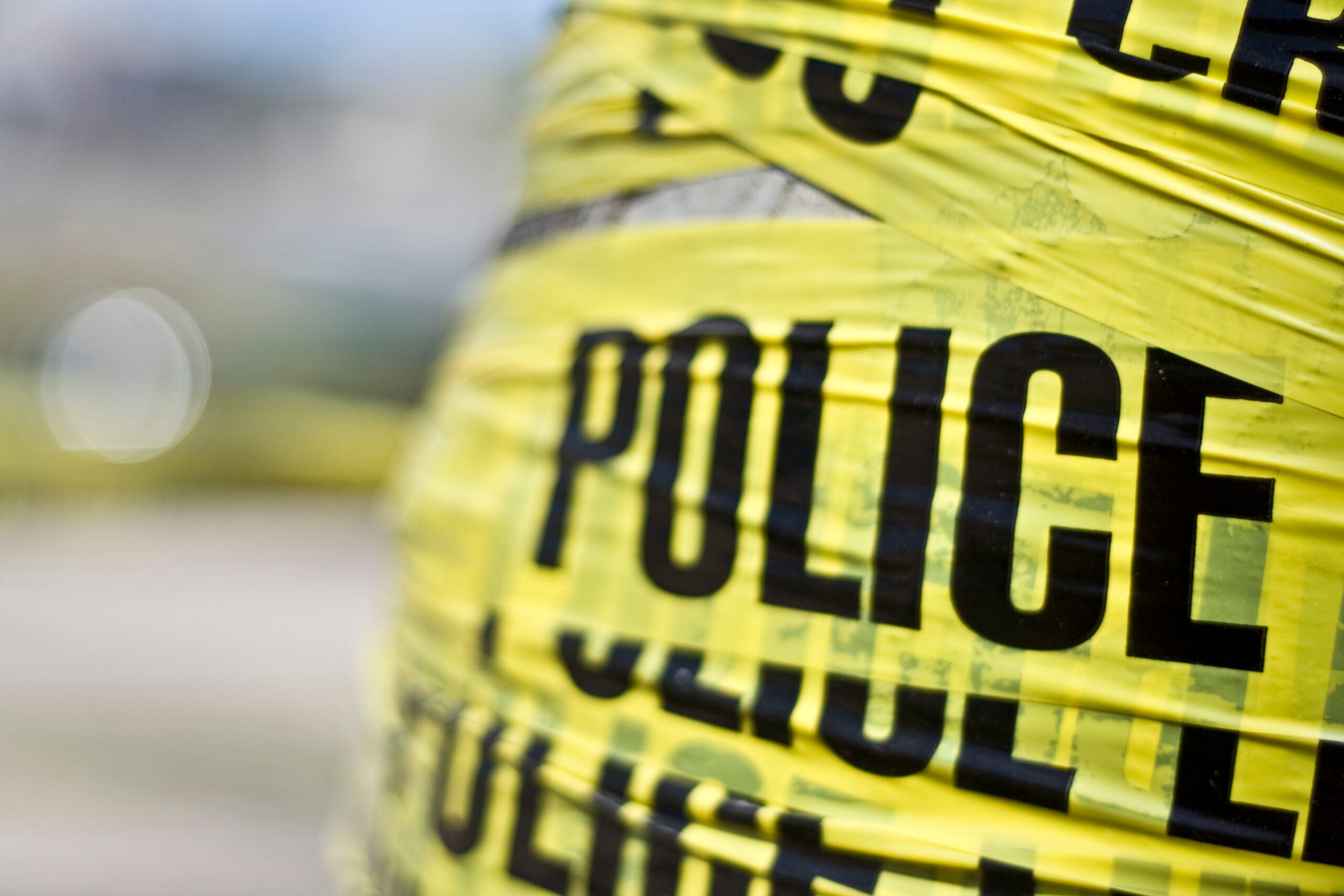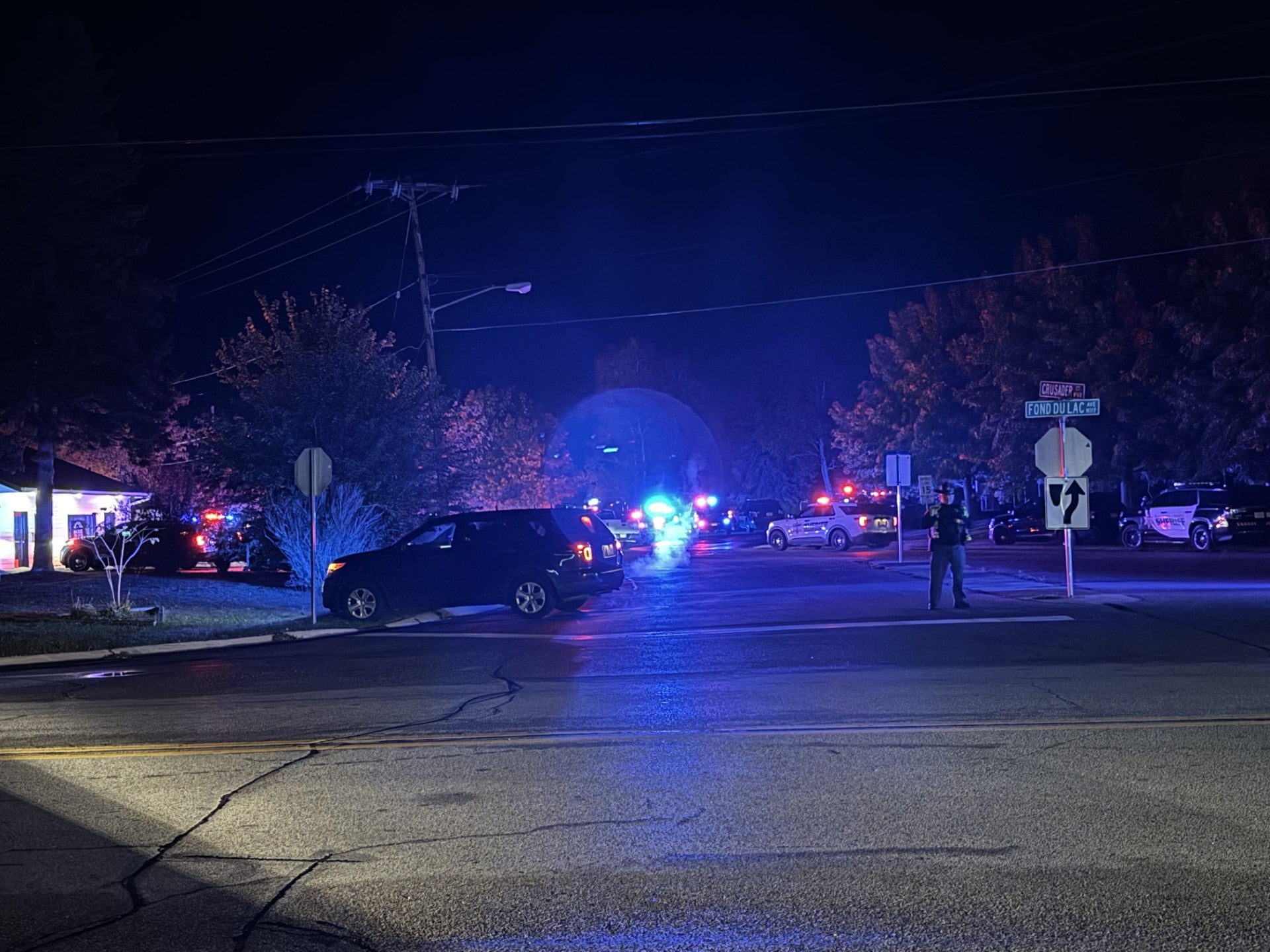A community healing event was held Thursday night for those impacted by the March 22 Wausau area shooting spree. The state Department of Justice and local police departments organized the event in part to help officers cope with the tragedy.
Wausau Mayor Bob Mielke, right, consoles Everest Metro Police Chief Wally Sparks at a healing event following the March 22 shooting spree. Glen Moberg/WPR
A lone gunman took the lives of Everest Metro Police Detective Jason Weiland, attorney Sara Quirt Sann, and bank employees Karen Barclay and Dianne Look. The suspected gunman, Nengmy Vang, died Saturday from gunshot wounds he received the day of the shooting.
Stay informed on the latest news
Sign up for WPR’s email newsletter.
Wausau Police Chief Jeff Hardel told people at the gathering that friends and family members of the victims are still in shock.
“It’s really impacted the whole community,” Hardel said. “They have felt the deep pain that all of us feel here. The community, I would say, has been shaken to its core.”
Everest Metro Police Chief Wally Sparks said, “We lost a member of our family. Nothing can prepare you for that.”
Scott Sann, the husband of Sara Quirt Sann, was also at the gathering.
“We thought this couldn’t happen to a community like ours. Perhaps like the Trojans, we thought we were unbreachable,” Scott Sann said.
“I am asking the leaders here tonight to be humble, listen to one another and challenge each other respectfully so that we can try to prevent something like this from happening again,” he continued.
A retired sheriff from South Carolina, Ray Nash, came to work with officers who may have been traumatized by the loss of one of their own.
“We don’t know how each individual officer is going to respond,” Nash said. “We all deal with trauma in different ways, just like we deal with grief in different ways. But we want the officers to be aware of danger signs, where it’s becoming debilitating.”
Nash asked the officers to look out for each other.
“It’s not enough just to watch each other’s back out on the street,” Nash said. “They need to be watching each other’s back from an emotional perspective as well.”
Wisconsin Public Radio, © Copyright 2024, Board of Regents of the University of Wisconsin System and Wisconsin Educational Communications Board.





